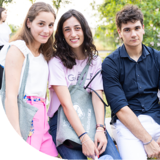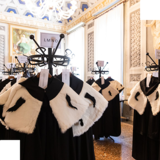The Faculty of Arts and Philosophy is traditionally the area in which humanities have converged and developed. This grounds in the system of university studies in the Middle Ages, from which European culture was born. It is no coincidence that Father Agostino Gemelli, alongside his law studies, wanted, from the very beginning of his University, a special focus on humanistic studies. But it has never been a static presence; the Faculty has always expressed a strong capacity to update itself over the years.
In line with its identity, the Faculty today accepts the new challenges to humanistic culture; it adapts to the provisions of the recent restructuring of degree courses (three-year) and graduate degree programmes (two-year), also making use of the autonomy recognised to individual universities to draw on the values cultivated with a high scientific profile. In addition to undergraduate degrees, in the a.y. 2020/2021 the Faculty of Arts and Philosophy runs a graduate programme in Modern Philology (LM-14) at the Brescia campus.
Objectives
The graduate degree programme in Modern Philology is intended to provide, on the one hand, an indispensable methodological and disciplinary background and, on the other hand, to train highly versatile and advanced professionals in the fields of book and multimedia publishing, memory conservation, cultural processing, entertainment, event promotion, information and public communication.
The targeted development of the above-mentioned skills and abilities will focus, as the case may be, on the more exquisitely philological-literary side or on the side of editorial production, on the historical horizon of political-social, literary and cultural events or on the multiple forms of artistic expression, on the performing arts and on the universe of communicational media.
Due emphasis will be placed on the edition of the texts, as well as on methodologically equipped analysis and critically informed interpretation knowledgeable and bibliographically informed about the works; the historical dimension of the phenomena studied, taking into account epochal changes and turning points, but also the authority of traditional authors, the continuity of tradition and intertextual practice, as well as the treatment of theoretical-epistemological issues and interdisciplinary aspects; the development of an overall view of human events and signs over time; the research method, places, sources and tools, both ancient and modern, available; to the skills of analysis and interpretation of artistic contexts, of the performing arts and of media communication and promotion, in particular in their intermediate dimensions and in their relationship with literature; to the practical experimentation, in the field, of the operating techniques, through exercises, laboratories and internships; to the development, finally, of original research, in itinere, within specific didactic activities, and naturally at the end of the study cycle, with the degree dissertation.





